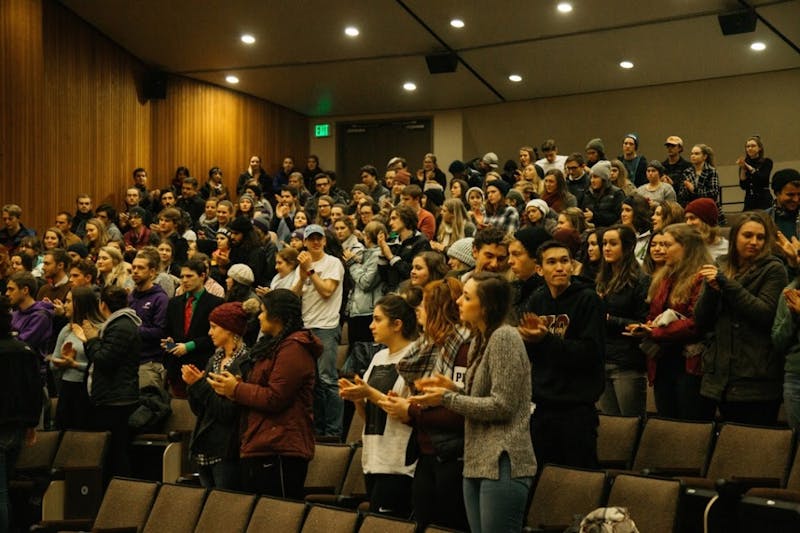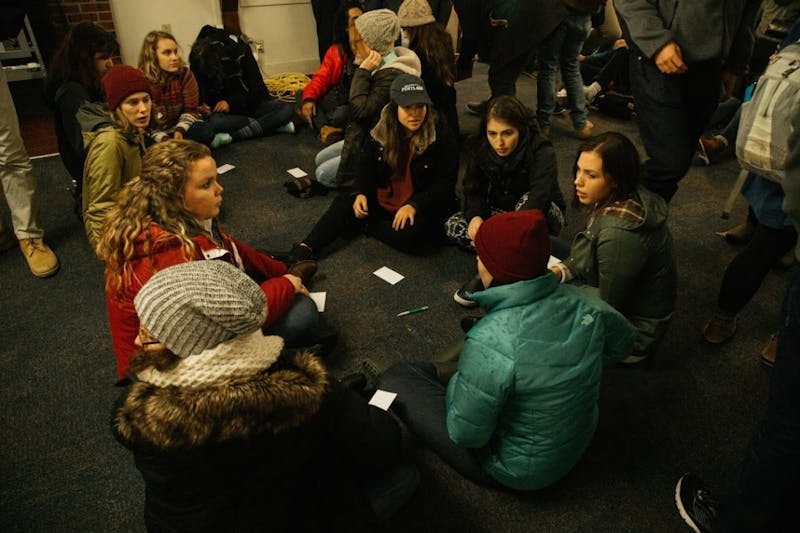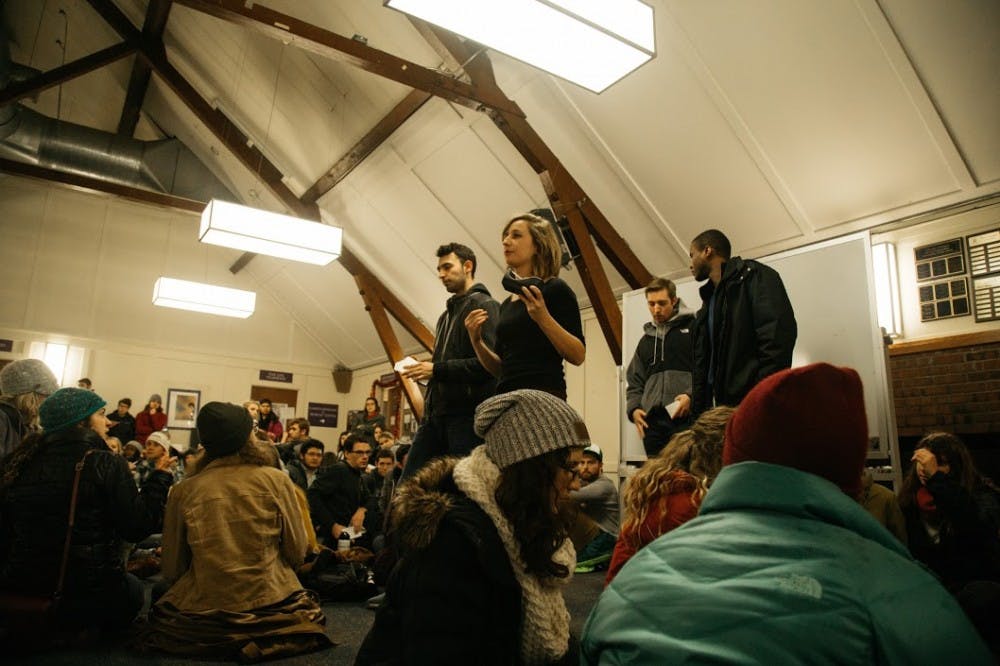It didn’t matter that there was snow on the ground. It didn’t matter that it was 9 p.m. with finals looming on the other end of the weekend. Even Public Safety’s presence just inside the doors of Buckley Auditorium didn’t deter students from filing in.
Students, faculty and staff members packed the auditorium Thursday night until there was only standing room left.
“I think we’re all here for one central concern, and that concern is interpersonal violence and sexual assault,” Campus Program Board Director Jacque Nelson said, welcoming the crowd.
Following a week of impassioned campus conversation about sexual assault after freshman Clara Ell came forward with the story of her alleged sexual assault and subsequent discontent with the student conduct process, student representatives from ASUP, Students Against Sexual Assault and the Student Health Advisory Board worked to organize an event prior to Winter Break. The initial presentation in Buckley Auditorium was brief, but nearly the entire crowd made its way to St. Mary’s afterwards for more conversations on how to move forward after the week’s events.
Nelson explained to attendees the basic overview of Title IX, the federal law that requires colleges and universities to prevent sexual harassment, gender based discrimination and sexual violence on their campuses. Senior and Green Dot representative Sarah Espinoza, Students Against Sexual Assault president Abby Sherman and Kenna Hall Service and Justice Coordinator Chelsea Cook then briefly mentioned on campus resources for sexual assault survivors and called for continued student commitment to the issue.

“We can support each other, we can watch out for each other, and we can work together to make our campus here at UP safe again,” Espinoza said.
The event was clearly intended to be the start of a conversation, allowing students to come together in person after a week of expressing frustrations and concerns individually and online, and the 400+ attendees suggested that it’s a discussion that will likely continue.
Guilian Luchini, a junior chemistry major, said he was pleased to see so many students at the event.
“I am here to support those on campus who I know that have been sexually assaulted,” Luchini said. “It was both educational and called for action, and it’s really great to see all the people here who recognize that this is an issue.”
But the gathering in St. Mary’s — with students piled onto couches and tables, clumped on the floor, and huddled into corners — was truly the main event. ASUP President Brandon Rivera encouraged attendees to engage in small group discussions, handing out slips of paper where students could write down a suggested “action plan” for the University to take in response to the issue of sexual assault.

Students lingered for more than an hour. By the end of the night, hundreds of suggestions had been taped to a whiteboard at the front of the room.
“I want a University that validates the individual experiences of students,” senior communication studies major Kerrie Doran said. “I want them to address the problem of sexual assault rather than treating it like bad PR.”
Junior Courtney Schmidt said she was sexually assaulted on campus “two years, two months and four days ago” and never reported the incident to the student conduct board because she was confused about the process and afraid of retaliation.
“As a survivor of sexual assault, I feel the University has continually failed to provide the proper resources to survivors,” Schmidt said. “The reporting process needs to be easier and more accessible, a full time Title IX coordinator is necessary, and people who report should have an advocate assigned to them so that they are fully aware of the resources available to them.”
The need for a paid, full-time Title IX coordinator is a request that came up in many of the proposed “action plans”. Suggestions left behind at the end of the event also called for increased support for survivors of sexual assault, an affirmative consent policy and clear guidelines explaining how the student conduct board determines when a student is too intoxicated to consent to sex.

ASUP, in cooperation with several other on-campus student organizations, plans to compile the suggestions into a singular action plan to present to the committee appointed by Fr. Poorman last month to review the University’s Title IX policies, procedures and practices after Winter Break.
“This event was a way to ensure people felt their voices were being heard,” Sherman said. “We don’t want people to forget about the way they’re feeling right now.”








